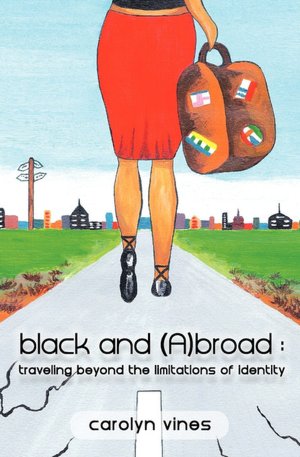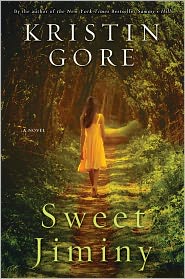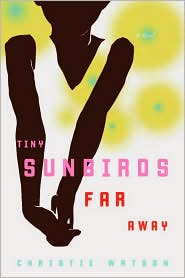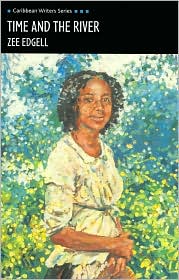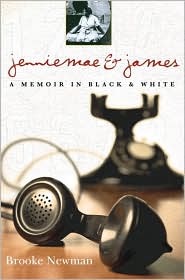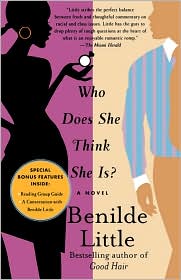
Any time you read a book, you bring your own history and experiences along with you. They shape your perception of what you're reading. So it wasn't surprising to me that when I looked at other reader's reviews of
Mama's Child on Goodreads, the people that loved it versus those that barely tolerated were firmly divided into two camps.
Consistency is important in stories. I expect that if an author is inconsistent, his or her editor will help them. The author couldn't decided whether or not Ruby, one of the main characters, was 11 or 13 in 1978. As a result, I counted no less than 10 times where her age was changed. In one paragraph, she would be referred to as a teen, where just a sentence or two ago, the author noted that she was 11, not exactly how I would define teen. Because of the subject matter and the way in which the daughter was expected to react to situations, it was important to get her age right. There are matters you would expect 13 year olds to handle better than an 11 year old. This set the tone for me and lead to my initial dislike for the book and the author. If you're not careful and don't care about your characters, how can you expect the readers to?
There are some that thought the book was "too racial." To quote a fellow reader on Goodreads,
"To be honest, I got tired of the book going on and on about everything being racial," which is laughable, because if you're writing a book about a biracial child's conflict with her white mother that's firmly rooted in identity, I'm not sure how it can be written without touching on race. And if I'm being honest, this book irked me because of the mother's inability to deal with race, though that's just one of the reasons I had a problem with the story.
Solomon Jordan of Atlanta and Elizabeth O'Leary of Cleveland first meet in Greenwood, Mississippi in the summer of 1963 as members of the SNCC teaching at the Freedom School. Bonding over music and literature, the two head for Oakland, California at the end of the summer to begin their lives together. In their infatuation with each other, neither really takes the time to wonder how the racial makeup of their relationship will affect them and those around them.
Fast forward 15 years and Solomon and "Lizzy" are parents to 13 year old Che and 11 year old (sometimes) Ruby. While Che is content to go along to get along, Ruby finds herself questioning the white authority at school and in other aspects of her life, as she's been taught to do by her parents. Bigger problems are in store as Solomon, who begins to feel ashamed of his white wife in the presence of his Black Panther friends, pulls away from her. Though Ruby adores her father, I found him to be lazy when it comes to his relationship with Elizabeth. Rather than discuss why her presence makes him uncomfortable around other black people, he instead uses the women's liberation movement against her. The truth is, he never thought about how he would be viewed by others because of her and comes to resent her for making him appear as less than down for the cause.
With Ruby as an observer, she begins to resent her mother as well. I'm able to sympathize with Ruby much more than Solomon or Lizzy because of all the people affected by their divorce, she received the brunt of the fallout. With Solomon and Che gone from the house, Elizabeth/Lizzy becomes Liz, a woman who no longer cooks, who no longer wants the responsibility of parenting. Eleven year old Ruby rebels, telling her mother that one does not simply decide that they no longer want to be a parent. The reality is people decide everyday that they no longer want to be parents, but to expect the child in that situation to not be confused is absurd. Then to move from that to making significant lifestyle changes with no warning and expecting Ruby to be on board with them, it's no wonder that she rebelled.
The book begins with an adult Ruby cutting Liz off. And though other reviewers tried to say it was all about race, I'd say it was a combination of that and resentment of bad parenting. This was a difficult book to read. I honestly got tired of Liz and her whining
white woman tears. As someone that prided herself on interacting with the black community and being in touch with her daughter's feelings, she quickly retreated to her privileged mindset as soon as she was called out on her actions, supported by her fellow "progressive" friends. At no point does she ever take into consideration Ruby's point of view, choosing to believe that the fact that she was her mother trumped all. As much as I wanted to feel sorry for Liz as a mother, I couldn't. She entered into the relationship with Solomon with rose-colored glasses on and didn't adequately prepare herself for the road she would travel as the mother of biracial children or the difficulties she might face in an interracial relationship. Simply wishing something is easy doesn't make it so.
I've no doubt that who you are plays a great role in how you perceive what you're reading. I've no doubt that my opinions on
Mama's Child vary greatly from others. One glance at Goodreads' reviews will confirm that, but I stand by my low rating of the book. I initially only gave it 3 stars on Goodreads (and later changed it to 2), only because 2 1/2 stars aren't an option. Going back and reading my notes, I think that even that half star was too generous. The whole book reads as a "look at me, I told my black child to be aware of the world around her and when she realized I was a part of that world, and not necessarily the good part, her survival instincts kicked in and she disowned me. Woe is me."
320pp
Published: May 2013
Disclaimer: Copy of book received from publisher, opinions are my own.

 Synopsis: Agreeing to go to a wedding with a guy she gets stuck with in an elevator is something Alexa Monroe wouldn’t normally do. But there’s something about Drew Nichols that’s too hard to resist.
Synopsis: Agreeing to go to a wedding with a guy she gets stuck with in an elevator is something Alexa Monroe wouldn’t normally do. But there’s something about Drew Nichols that’s too hard to resist.




















